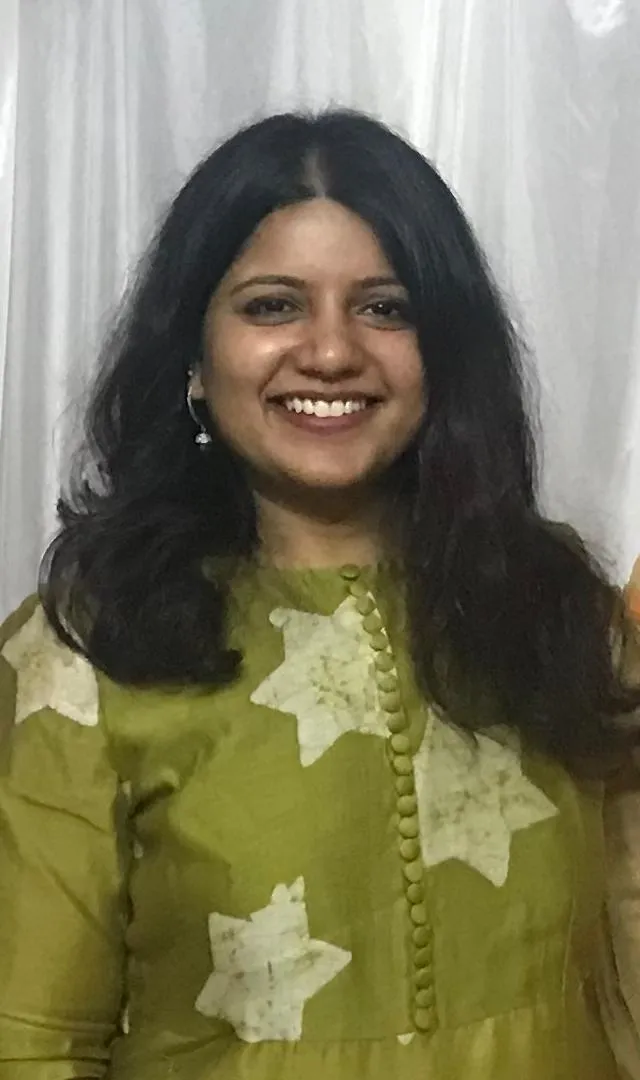How Baeru is promoting climate action by empowering women
Divya Hegde is the Founder of Baeru, an ocean waste recovery startup that empowers women in rural communities in coastal Karnataka to turn waste into wealth while contributing to a circular economy.
“I started my career at Google and ended up in garbage,” says Divya Hegde, who is building Baeru Environmental Services, India’s first ocean waste recovery startup.
Baeru empowers women by including them in the waste management process while contributing to a circular economy.

Divya Hegde
After completing her studies in integrated marketing communications at Northwestern University in the US, Hegde worked for Google and returned to India in 2012 to start her own creative agency that she ran for 10 years.
Tackling waste at its source
After returning to India and being in touch with her roots again got Hegde to think along different lines. Hailing from Udupi in coastal Karnataka, she began looking at how people were interacting with the ocean and delved deep into the workings and challenges of the fishing community.
“I began thinking about why we were not valuing it more than we should. I started talking about the environment to students and realised that people were willing to take care of resources, but there was a lack of support for doing this,” she tells SocialStory.
Hegde points out that 420 million people are part of the coastal population in India, out of which 48% are women. And, 61% of the fishing community lives below the poverty line.
Fisheries is the second largest export-oriented industry and an important contributor to the Indian economy.
Karnataka alone covers 400 km of India’s coastline and it became imperative to understand that climate change should not be tackled as a standalone subject.
“While talking to members of the community, the common complaint was that they were finding more and more plastic in the sea, almost equal to the fish they found,” Hegde says.
To understand waste management, it was also important to explain to them that everything was interconnected. While the coastal populations consume fish, they are also dumping garbage into the water bodies—be it streams or rivers that ultimately join the ocean. So, they were consuming fish that ate the garbage in the ocean.
Multi-pronged strategy to tackle waste
Hegde started Baeru (which means 'roots' in Kannada) in 2021 to tackle the problem at the source.
Baeru partners with fishermen to bring plastics back from the ocean when they are out fishing. The waste is then cleaned and segregated by women from fishing communities, generating additional income for them. It also facilitates door-to-door collection of waste and segregation in waste management centres, which is then forwarded to recyclers and vendors to generate income for these women. The recycled material is used to produce eco-friendly products.
Baeru operates India’s first rural/coastal waste management facility that offers a payback model directly benefitting the women working with waste. This is in partnership with the Karnataka government and the Udupi Zilla Parishad.
“As part of the process, women are hired to work in facilities provided by the government where they earn a salary and are also paid money from the revenue generated as a payback model. Most of the women come from marginalised communities,” she elaborates.
Another key area Baeru works in is behavioural change.
“We organise awareness programmes by involving local communities through cultural art forms like Yakshagana and puppetry, which are indigenous to these communities. These talk about our relationship with the ocean and are taken to schools, colleges, and women’s sabhas. This is part of our vertical called Culture for Climate, and generates income for artistes,” she adds.
Baeru is present in five districts of Karnataka—Dakshina Kannada, Udupi, Uttara Kannada, Bellary, and Chikamagaluru. It works with 40+ local bodies, has generated over 1,000 livelihoods, and impacted over 3,500 women. It has a team of 165 people.
Gender equity in waste management
By involving women in this circularity, Hegde believes it makes a strong case for gender justice.
“If you look at waste, the majority of decisions regarding it are taken by women. Then why are we not involving them as powerful allies?” she asks. She adds that coastal women are far from victims, taking charge of their lives and their financial freedom.
“Suni from our Haradi centre had always dreamt of owning a piece of gold jewellery. Through the earnings from our programme, she has bought gold jhumkas. Geetha, our Kollur supervisor, took her leadership skills beyond our walls, ran for president of her local panchayat and was elected,” Hegde says with pride.
Baeru also offers counselling to the women working in waste management as part of its Khushi project.
She explains, “You have to be strong to be in waste management. It’s always looked down upon. Also, women who do not come from a position of privilege will have domestic issues. We have partnered with counsellors to provide pro bono counselling services.”
The biggest challenge in Baeru’s journey, avers Hegde, is behavioural change and raising funds. However, she is thankful for the different grants that have come her way. Baeru won the Transform Challenge by Unilever, EY, and FCDO, and is also incubated at NSRCEL–IIM-Bangalore. It is now looking at raising CSR funding.
“We want to scale outside of the five districts we are in along the long coastline in India and looking at generating more livelihoods in the process,” she says.
Edited by Megha Reddy







